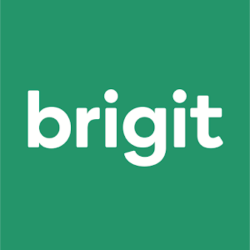HELOC Loans Unlocked: How Do They Work?
 Tapping into Home Equity: A Solution for Your Financial Challenges
Tapping into Home Equity: A Solution for Your Financial Challenges
Facing pressing financial needs like urgent home improvements or the need to consolidate debts can be daunting, especially when considering using your home’s equity. The world of Home Equity Lines of Credit (HELOC) is filled with complex terms and fluctuating interest rates, often leading to confusion and worry. The thought of hidden costs and the risk to your most valuable asset – your home – can make the decision to choose a HELOC an overwhelming one.
This guide is designed to simplify HELOCs, providing clear and concise insights into how they work and how they can serve as a viable financial tool. Whether you’re looking to upgrade your home or alleviate financial pressures, we offer the guidance you need to navigate this process with confidence. If you’re ready to harness the potential of your home equity, apply now for a financial solution that meets your needs.
Understanding HELOC: Harnessing Your Home Equity
When it comes to utilizing the equity in your home, a Home Equity Line of Credit (HELOC) stands out as a flexible and often-used option. Understanding how a HELOC functions is key to deciding whether it’s the right financial tool for you.
A HELOC is a type of loan where your home serves as collateral, offering you access to a revolving credit line. Unlike a traditional lump-sum loan, a HELOC allows you to borrow up to a certain amount during a “draw period,” usually 5 to 10 years, and pay back only what you use.
How HELOCs Work:
- Draw Period and Repayment Phase: During the draw period, you can borrow funds as needed, often with the flexibility to make interest-only payments. Following this, the repayment phase begins, where you pay back the borrowed amount along with interest over a set period.
- Interest Rates: HELOCs typically have variable interest rates, meaning the rate can change over time based on market conditions. This aspect requires careful consideration, as it can affect your monthly payments.
- Access to Funds: Most HELOCs provide easy access to funds through checks or a card linked to the credit line, making it a convenient option for ongoing expenses.
Understanding these key features of a HELOC can help you assess its suitability for your financial situation. Whether for home renovations, education expenses, or debt consolidation, a HELOC offers a flexible approach to borrowing against your home equity, but it’s vital to consider the potential impact on your long-term financial health.
Key Criteria for HELOC Approval
Securing a Home Equity Line of Credit (HELOC) involves meeting specific lender requirements. Here’s a breakdown of the essential qualifications you need to be aware of for HELOC approval:
Home Equity as a Foundation
The amount of equity in your home is a critical factor for HELOC eligibility. Typically, lenders require you to have 15% to 20% equity, which is the difference between your home’s current market value and your mortgage balance.
The Role of Your Credit Score
Your credit score significantly influences your HELOC application. A higher score often means better interest rates and terms. While lower scores may not disqualify you, they can impact the loan’s conditions.
Debt-to-Income Ratio (DTI) Considerations
Lenders assess your DTI ratio, a measure of your monthly debt payments against your gross monthly income. A lower DTI ratio suggests to lenders that you’re more likely to manage the additional debt of a HELOC.
Income Stability for Loan ConfidenceDemonstrating steady and reliable income is essential. It reassures lenders of your capacity to repay the borrowed amount.
Understanding and meeting these criteria is crucial for HELOC approval. Each lender may have varying requirements, so it’s beneficial to compare different offers. Ensuring these qualifications align with your financial situation and goals is key to a successful HELOC application.
Credit Score Impact on HELOC Approval
The role of your credit score in securing a Home Equity Line of Credit (HELOC) is pivotal. This section delves into how your credit score influences the HELOC process, including the possibilities for those with lower scores.
Understanding the Credit Score Influence:
- Higher Scores, Better Terms: A higher credit score typically opens the door to more favorable interest rates and loan terms. Lenders see higher scores as an indicator of reliability and lower risk.
- Lower Scores and HELOC Options: Having a lower credit score doesn’t necessarily mean you can’t get a HELOC, but it may affect the terms and conditions of your loan. Lenders might offer a higher interest rate or a lower borrowing limit to offset the perceived risk.
- Special Considerations: For those with a credit score around 580, HELOC options may be limited, but they aren’t non-existent. It’s crucial to shop around and discuss with lenders to find potential opportunities.
- No-Credit-Check Options: While rare, some lenders might offer HELOCs without a credit check, usually at the cost of less favorable loan terms.
Your credit score plays a significant role in determining your eligibility and the terms of a HELOC. It’s advisable to review your credit score and understand its impact before applying for a HELOC. Improving your credit score, if needed, can be beneficial in securing better loan terms. Regardless of your credit situation, exploring all available options and speaking with different lenders can help you find a suitable HELOC solution.
Exploring Refinancing in Home Equity Loans
Refinancing your home equity loan or HELOC can be a strategic financial decision, offering opportunities to adjust to more favorable terms or rates. It’s a process that requires a careful evaluation of your current loan situation against the backdrop of your long-term financial goals.
Refinancing Your Home Equity Loan
When it comes to refinancing a home equity loan, the main objectives are usually to secure lower interest rates or to change the loan’s terms to better suit your current financial situation. Key factors to consider include the prevailing interest rates, your current credit score, and the outstanding balance on your loan. The ultimate aim is to ensure refinancing leads to tangible benefits such as reduced payments or a more manageable loan term.
HELOC vs. Cash-Out Refinance
Refinancing a HELOC may involve modifying the terms of your existing credit line or integrating it into your primary mortgage. On the other hand, a cash-out refinance involves adjusting your primary mortgage and extracting additional funds based on your equity. This option differs from a HELOC and should be weighed for its long-term impact and current mortgage rate implications.
Refinancing within the home equity space is a nuanced decision that should align with both your immediate and future financial needs. It’s advisable to consult with financial advisors to navigate these options effectively.
Tax Benefits of a HELOC
- Potential Tax Deductibility: Interest paid on a HELOC may be tax-deductible if used for qualifying expenses like home improvements.
- Home Improvement Advantage: Using HELOC funds for buying, building, or substantially improving your home typically qualifies for tax deductions.
- Varying Based on Use: Tax deductibility depends on how you use the HELOC funds; personal expenses like debt consolidation usually don’t qualify.
It’s important to consult a tax professional for personalized advice, as tax laws can be complex and vary based on individual circumstances.
Timeline and Process for Obtaining a HELOC
Understanding the timeline for obtaining a Home Equity Line of Credit (HELOC) is crucial in planning your financial steps. This section provides insight into the typical duration and the process involved in securing a HELOC.
The process of getting a HELOC usually involves several stages, each contributing to the overall timeframe:
- Application and Approval: Initially, you’ll need to apply with a lender, providing necessary documentation such as proof of income, credit information, and details about your home’s equity. The approval process can vary, typically ranging from a few days to several weeks, depending on the lender’s requirements and your financial situation.
- Appraisal and Valuation: Part of the process may include an appraisal of your home to determine its current market value. This appraisal is a key factor in deciding how much you can borrow and can add time to the approval process.
- Finalizing the Loan: Once approved, there will be a period for finalizing the loan terms and paperwork. This stage includes reviewing and signing loan agreements, which can be relatively quick but is dependent on how promptly you and the lender complete the necessary steps.
- Access to Funds: After all the paperwork is finalized, you’ll have access to the funds. Some lenders may offer immediate access, while others might have a brief waiting period.
Overall, the timeline for obtaining a HELOC can range from a few weeks to a couple of months. Planning ahead and understanding this process can help ensure a smooth experience. It’s also important to work with a responsive lender and to provide all required information promptly to expedite the process.
Can I Sell My House if I Have a HELOC?
Yes, you can sell your house even if you have an active Home Equity Line of Credit (HELOC). However, there are important considerations and steps involved in this process.
When you decide to sell your home with an active HELOC, the outstanding balance of the HELOC must be paid off as part of the sale process. Here’s how it typically works:
- Paying Off the HELOC: The outstanding balance on your HELOC is usually paid off using the proceeds from the sale of your house. This is often handled as part of the closing process.
- Closing the HELOC Account: Once the balance is paid off, the HELOC account is closed. This step is crucial to release the lien on the home, allowing for a clear transfer of the property title to the new owner.
- Managing Remaining Proceeds: If there are any remaining proceeds from the sale after paying off the HELOC and any other mortgages or liens, these funds are typically returned to you.
Selling a home with a HELOC requires careful financial planning and coordination with your lender and real estate professionals. It’s important to understand how the sale impacts your financial obligations and to ensure that the HELOC is fully accounted for in the sale process. By managing these details effectively, you can smoothly transition to selling your home, even with an active HELOC.
Deciding Between HELOC and Home Equity Loan
When choosing how to leverage your home’s equity, consider these key differences between HELOCs and traditional home equity loans:
HELOC:
- Offers a flexible credit line for varied borrowing needs.
- Typically has a variable interest rate.
- Suitable for ongoing expenses or projects.
Home Equity Loan:
- Provides a one-time lump sum with a fixed interest rate.
- Ensures predictable monthly payments.
- Ideal for single, large expenses.
Your choice between a HELOC and a home equity loan should be based on your specific financial needs, preference for payment predictability, and comfort with interest rate variations.
Exploring Other Quick Cash Solutions
In addition to HELOCs, there are several other financial options available for obtaining quick cash. Understanding these alternatives can help you make a more informed decision, especially if you’re weighing the pros and cons of taking out a HELOC. Here’s a brief overview of some immediate financial solutions and income strategies without debt:
Immediate Financial Solutions:
- Home Equity Loans: Use home equity for loans with lower interest rates, but be mindful of the foreclosure risk.
- Payday Loans: Provide instant cash but typically come with very high interest rates.
- Personal Loans: Suitable for those with good credit, offering lower interest rates.
- Credit Card Cash Advances: Easily accessible but can be expensive due to high fees and interest rates.
- Title Loans: Quick access to cash using your vehicle as collateral but with the risk of losing your vehicle.
- Peer-to-Peer Loans: Flexible lending options with varying rates based on community-based platforms.
- Pawn Shop Loans: Immediate funds in exchange for valuable items as collateral.
- 401(k) Loans: Borrow from retirement savings without a credit check but with a potential impact on retirement funds.
- New Credit Cards with Introductory Offers: Useful for short-term expenses, offering introductory periods with low or no interest.
 Brigit | Build Your Credit and Your Savings
»
|
 BadCreditLoans.com | Quick Loans up to $10,000
»
|
 iCash Loans | Get a Loan Today
»
|
 Wells Fargo Reflect® | 0% APR for 21months (Credit Score 670+)
»
|
Income Strategies Without Debt:
- Borrowing from Family and Friends: Could offer flexible, interest-free loans but may impact personal relationships.
- Selling Personal Items: Convert belongings into cash, though it can require time and effort.
- Seeking Community Assistance: Look for non-repayable support from charities or government programs.
- Side Gigs or Freelancing: Generate extra income without the commitment to a traditional loan.
Each of these alternatives comes with its own set of advantages and considerations. It’s important to assess your individual financial situation, the urgency of your needs, and your ability to meet potential repayment obligations before choosing the right option for you.
FAQ: Addressing Common HELOC Questions
In this section, we tackle some frequently asked questions about Home Equity Lines of Credit (HELOCs) to provide clarity and assist in your decision-making process.
Is it hard to get approved for a HELOC?
Approval for a HELOC depends on factors like your home equity, credit score, and debt-to-income ratio. While higher credit scores and more home equity generally ease the process, having lower scores and less equity doesn’t automatically disqualify you.
How does a HELOC loan work for those with bad credit or a credit score of 580?
Obtaining a HELOC with a lower credit score, such as 580, can be challenging, but it’s not out of reach. Lenders may offer HELOCs at higher interest rates or with specific conditions to mitigate the risk of lower credit scores.
Is a home equity loan a good idea for homeowners?
A home equity loan can be beneficial for significant, one-off expenses, thanks to fixed interest rates and predictable repayments. However, it’s crucial to evaluate its long-term effects on your home equity and financial situation.
Are there options for a home equity loan with no credit check?
Home equity loans typically involve a credit check as part of the approval process. Some lenders may provide options for those with flexible credit requirements, but these usually come with different terms.
These answers offer a foundational understanding of HELOCs, helping you navigate through various aspects of this financial tool. For more specific guidance, consulting with financial professionals or your lender is recommended.
Conclusion: Is a HELOC the Right Choice for You?
As we conclude our comprehensive guide on Home Equity Lines of Credit (HELOCs), it’s important to reflect on whether this financial tool aligns with your unique needs and circumstances. A HELOC offers flexibility and can be a powerful resource for leveraging the equity in your home, but it also requires thoughtful consideration of the potential impact on your long-term financial health.
Key Takeaways:
- A HELOC provides a flexible line of credit based on your home equity, but it comes with variable interest rates and terms that can affect your financial stability.
- Understanding your eligibility, the tax implications and the differences between a HELOC and other loan options like home equity loans is crucial.
- Consider your current financial situation, future goals, and how comfortable you are with the associated risks and benefits of a HELOC.
Ultimately, the decision to choose a HELOC should be based on a careful evaluation of how it fits into your overall financial plan. It’s not just about accessing funds; it’s about making a strategic choice that supports your financial objectives both now and in the future.
Take Control of Your Financial Future
Considering a HELOC or exploring financial alternatives? Consult with a financial advisor for advice tailored to your specific needs, ensuring you choose the best path for your financial future.
Have insights or experiences with HELOCs? Sharing your story could aid others in their decisions. Don’t hesitate—contact a financial advisor today to take a confident step towards your financial goals.
Caught in a Bind? Know Your Emergency Financial Options
- HELOC Loans Unlocked: How Do They Work?
- Borrow from Retirement With A 401k Loan: A Comprehensive Guide
- Title Loans Explored: Your Guide to Borrowing Against Your Car
- Mastering Credit Cards: Types, Benefits, and Strategic Use
- Credit Card Cash Advances: Emergency Funds When You Need Them Most
- Home Equity Loans Explained: Unlocking Your Home’s Financial Power
- Pawn Shop Loans Unlocked: Your Ultimate Guide to Quick Cash and Smart Borrowing
- Peer-to-Peer Lending for Bad Credit: Unlocking Financial Opportunities
- Drive Away Happy: Your Complete Guide to Auto Loans and Buying a Car
- Unlock Your Dream Home: A Stress-Free Guide to Understanding Mortgages



